Jake Eagle's Blog, page 14
February 14, 2014
Running for my Emotional Life

Photo by: Anita Jean
I am a runner. Not a marathon runner, not a jogger, but an emotional runner. When I find myself in a challenging situation my instinct is to run—others may have the instinct to fight, others will freeze. It’s part of our primitive nature and how we respond to what we perceive as dangerous.
In the recent weeks I’ve been working with my tendency to run—I call this part of me the “Runner”—and I’ve been paying close attention to exactly what it is that I perceive to be dangerous. Some months ago, Jake wrote a blog about the difference between anxiety and fear. Anxiety is what I live with when I face the uncertainty of my life—fear is the feeling I experience when a tiger is chasing me. Two very different types of stimulus, but I mistakenly respond to them both in the same way. When I make myself anxious or worry myself, my heart starts to race, my thoughts begin to whirl and my initial instinct is to run, get out, go. Likewise, if a tiger ever chased me I would experience the same responses, with better reason, of course.
From what or who do I run?
So, with that definition of fear vs. anxiety in mind, I began to look at what do I run from? What is the scariest thing out there for me? What puts wings on my runners? I hate the answer, but it is an honest answer: the single most frightening thing I come up against in my life is intimacy.
Really.
I live with lots of uncertainty—my finances are never completely secure, my work is dependent on others, and I live in Toronto with Mayor Rob Ford, so it’s always a crapshoot relying on city services… I could get cancer tomorrow, and although I live in Canada—a lovely peace keeping nation, our leader is currently sucking up to the Israelis and making all kinds of enemies. Any minute now I might eat some Fukishima infected fish, I might get swine flu or I might freeze to death waiting for the bus in the -30 wind chill winter we’ve been having. But none of this makes me crazy; none of this sends me running.
What sets me running is being present in the moment with another human being. Sitting still and looking into someone’s eyes and being honest with them sends me right into a spin of epic proportions and I find that realization to be incredibly sad.
There is only one common denominator in my life
As I’ve been exploring this runner part of me, I’ve looked back at my history of broken relationships—family, friends and lovers. I’ve looked carefully at how the relationships began and then how they’ve ended and the common denominator in all of them is me. That’s not to say that I take all the responsibility for the failure of all my relationships, but with each one I see how my unwillingness to be honest and intimate has reaped an incredible swath of unhappiness and pain.
And underneath all that pain is a terrible sadness that I am seeing and feeling in a completely different way. As I own my resistance to intimacy, I find myself grieving for what could have been. I’ve wasted so many opportunities to be loving and kind. I’ve run from love and connection, responsibility and maturity, and I’m left with an emptiness that I had to hide behind the word “victim.”
The only way I could live with the wreckage of my past and my inability to connect with you (and myself) was to blame you for our lack of connection. In every failed relationship I convinced myself that I had done my best, I had really tried and the failure was not my fault. In every case I either blamed you for being a jerk or I blamed my crappy childhood for making me unavailable. Regardless of my excuse I always left every relationship as the victim and therefore blame free.
I’ve done this for over 50 years and when the time came for me to look at my behavior I resisted mightily. I fought, squirmed, spun and wailed like a banshee. If I take responsibility for my inability and unwillingness to connect with you now and then, then the label of victim no longer fits. And if I can’t be the victim then I have to own the havoc, pain, disappointment, sadness and abandonment that I create by running.
Victim’s Anonymous
I fought hard to avoid taking responsibility. I resisted like a champ. I did not want the fault to be mine, I did not want to be the reason I was so alone and lonely. I fought to keep my membership in Victim’s Anonymous—I fought to be blameless. And then, largely as a result of practicing Reology and using ReSpeak, I stopped fighting with myself and I accepted my part in each of my failed loves. The friends I no longer have, the lovers who have left, the family I don’t know—all of them gone and perhaps gone for good.
And now I am here, in this moment, with my pain and sadness and guilt and for the first time I feel honest. I have an incredible load of grief for all that I missed. All my lovely friends who I was never honest with, all my lovers who never truly touched me and who I never truly touched, most of those relationships I can never repair. In every one of those relationships I thought more about me and what I was afraid of than I did about you and what you might need. My selfishness seems boundless to me now.
My work today is to stay crystal clear about my role in all my past relationships and to honestly accept what I did to end those relationships. I have lied to everyone in my life at least once. I have lied, told stories, moved away emotionally and eventually run as fast as possible to get away from a real connection with you. As I sit with acceptance of who I am and what I do, my heart simultaneously breaks and opens a little more each day.
It is an incredible experience to feel free and overloaded with sadness at the same time. I am elated that I have finally admitted this to myself and I am horrified at the depth of the pain I have caused by being unavailable and running away.
What can I do after years of running?
I console myself with the knowledge that I still have time and can do myself differently today. I cannot change how I behaved in the past and I cannot unburn many of the bridges I set ablaze with my selfishness and unwillingness. I can only be better NOW. I can seek to connect with you in this moment with all of my baggage and sadness and reveal myself.
Incredibly there are still many moments when I fall back into self pity and in my sadness I have an almost irresistible urge to find a way to erase what I have learned and go back to living as a victim with my head in the sand. But so far I haven’t been able to do that, the awareness of my Runner has stayed with me and with each day I find my identity as a victim slipping from my grasp.
Who will I be if I am not a victim? Who will I be if I stand honest and naked before you with nothing to hide behind, no story to rationalize my behavior? What will life be if I am honest and available and stop running?
I have no idea, I really can’t imagine how it will be to connect with you and myself from an honest stance regardless of the circumstance. I cannot imagine revealing myself to you day in day out, no matter what. But I aim to try—I am determined to find out how to live with intimacy in all my relationships. I refuse to live with this weight of regret and remorse of being a runner, and so I am going to do the scariest thing I can think of. I am going to stand still with my arms wide and my eyes open and say to you, “Hello Future Friends, Lovers and Family, this is me, I want to know you and I want you to know me.” And I am so very grateful that I still have time.
The post Running for my Emotional Life appeared first on Reology.
February 7, 2014
Lasting Change Is Possible
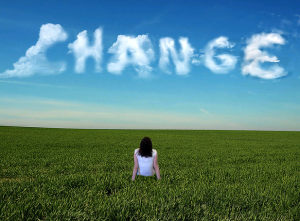 What is the key to making real, lasting change in our lives?
What is the key to making real, lasting change in our lives?As a therapist I used to look to create therapeutic home runs. Some of these felt to the client like a 4×4 across the forehead and others came in the form of a wave of love that produced satori—sudden enlightenment. Although I still value these moments, I realize that they don’t usually produce lasting change. They may contribute to seeing the world—or ourselves—in a new light, and this is part of what it takes to bring about change, but this alone is seldom enough.
Lasting change comes about as a result of two things—often happening in concert.
First, we need some kind of paradigm shift—a new way of making meaning of ourselves and our lives.
Second, we need to create new habits.
Why? Because we calcify ourselves with our old habits. We must replace them with new habits or else our new behaviors will be short lived.
Habits account for how we function throughout more than half of our waking hours, this is based on new research coming out of Harvard. Habits are super efficient ways of getting things done without having to think. I’d be in trouble without my habits. Yet some of my habits are the cause of how I disappointment myself—time and time again.
The messy pile on the left side of my office desk seems to reemerge within hours after I remove it. The postponement of taking a walk each day seems to be a recurring theme. Being impatient with my wife, Hannah, when she unknowingly interrupts me is a behavior I’d rather not see again. Yet, the pile on my desk keeps showing up, I’ve not walked enough this week, and I was impatient with Hannah twice, which is twice too often.
How can we change our habits?
The antidote to habitual behaviors is focused attention. I must use focused attention to wake myself up. When I use focused attention I arouse my higher brain centers. This is what many mindfulness practices stimulate—focused attention. But the problem is that they usually only last for a short period of time—30 to 60 minutes of meditation or yoga.
The practice that I find more impactful is to use ReSpeak, because I speak on and off throughout the entire day. If each time I speak I practice ReSpeak then I am using focused attention repeatedly throughout my day. This different way of using language requires me to slow down and be intentional—no longer habitual. As I do this repeatedly I create new neural pathways—new, healthy habits.
Language is how I make meaning of whatever happens in my life. Largely, I do this unconsciously. And in many situations that works fine, but when I experience a conflict within myself or tension with another person, I immediately start using ReSpeak. This way I disrupt my own habitual patterns of being defensive and reactive. As I break this tendency, I change my behaviors—and not just temporarily—but in a lasting way.
I just came back from our winter Reology Retreat in Mexico. I witnessed people change and grow for three reasons.
They had the courage to honestly speak up.
They entered a new paradigm that allowed them to make meaning of their lives and relationships in a new way.
They used ReSpeak, breaking their habitual speech patterns and experiencing new ways to connect with themselves and other people.
I witnessed a mother and her grown daughter reconnect after twenty years of animosity, alienation, and adversarial monologues.
I witnessed a woman have an epiphany the first night of the retreat when she exclaimed, “It’s all me.” What she meant was that by no longer thinking of herself as a victim, she was free to become the architect of her life.
I witnessed couples rise up in love again. Not “fall in love,” but consciously rise up in love.
I witnessed a man embrace his “darkest” side, which resulted in a new born compassion for himself and other people.
I witnessed a man name himself “Artist,”—everyone at our retreats chooses their own name—and this name served to remind him that as a master wood carver he uses the imperfections in the wood to enhance his designs, and he realized he could do the same things in his relationships. He could work with people’s imperfections instead of judging them.
Will these changes last? I speculate that for well over half the participants, these changes will last, because the two ingredients for lasting change were present. A paradigm shift and new habits.
Reology is the new paradigm. It helps me let go of praise and blame, come into the present moment, and step more fully into myself.
ReSpeak is the tool by which I can create new habits—the only tool I’ve ever found—that allows me to wake myself up every time I speak. When I use ReSpeak I focus my attention—engage my higher brain centers—so that I can consciously choose how I behave.
The post Lasting Change Is Possible appeared first on Reology.
January 9, 2014
Jake Eagle Interviewed by Hadley Finch
ReRight Your Life and Relationships With ReSpeak and Reology-Love Revolution from Hadley Finch LoveCasts on Vimeo.
The post Jake Eagle Interviewed by Hadley Finch appeared first on Reology.
January 3, 2014
New Year Resolutions
 Happy New Year!
Happy New Year!Okay . . . a brand new year. If you read our articles you know that we think one of the most profound things in life is our ability to “redo” ourselves.
What’s a redo?
A redo is a chance to exercise our free will, so as soon as we feel just slightly off—in the ways we treat people or behave—we go back and redo ourselves. This is uniquely what makes us human.
Well, every new year is kind of like a massive redo. We get to pause, think about the previous year, go back and clean up any emotional footprints that we left and don’t feel good about. And we set our intentions for the kind of year and kind of emotional footprints that we hope to create in the coming year.
And when it comes to setting intentions—a great way to do so is to join us at our upcoming retreat in Mexico. If you are thinking about joining us, we only have two places left—so call us this weekend if you want to make this happen for yourself. (505-986-3922)
Setting intentions and creating successful new year resolutions
The key to creating successful new year resolutions is to create one that is achievable on a daily basis. So be really specific. What would you have to do each day to fulfill your resolution?
We want to share with you our intentions for 2014.
Personally—I intend to have more fun. And Hannah tells me that her intentions are 1) to keep me company while I’m having more fun, and 2) to meditate everyday no matter what.
We also have an intention for Reology. In 2014 we’re going to focus on the people who join our community, helping them to bring about greater transformation in their lives. To accomplish this we will be developing new support groups for our graduates. And we are developing a new methodology that will allow our graduates to better understand which areas in their lives are calling for more attention. The six areas include:
Autonomy
Environmental Mastery
Personal Growth
Positive Relations With Others
Purpose In Life
Self-Acceptance
We will be able to help individuals better understand each of these aspects of their lives, as well as measure their progress for months to come after attending any of our retreats.
We continue to amaze ourselves with this work
Why are we doing this? Because Hannah and I continue to amaze ourselves with the possibilities of this work. We are taking our relationship to a level of ease and joyfulness, and taking our lives to a quality of abundance that we never knew was possible. We believe this is possible for us because of our commitment to integrate Reology so deeply into our lives. This leads us to ask, “How can we make this possible for you?”
Because we’re going to put more focus and intention in this direction, in the coming weeks and months you will see fewer articles from us. We’ll keep writing articles and we’ll let you know when we do, but they won’t be every week. They’ll happen when we have a burst of inspiration that we want to share with you. Fortunately, S. Katharine Rivers will continue writing articles for us in 2014, because so many of you have expressed your appreciation for her unique voice.
There’s something you can do for us
So far, we’ve never charged anything for access to our website, articles, and free eBooks. You can help us believe that this is all worthwhile by thinking of one friend who you can encourage to come to our website and join our community. All they need to do is download one of our free eBooks and then we’ll let them know when we publish a new article. Will you do this for us? Will you do it now?
Who is searching for a practice?
Reology is a practice. A combination of a psychological and spiritual practice. It is my belief that I need to focus on both areas—the psychological and the spiritual—if I want to achieve deep and sustainable satisfaction in my life.
The psychological part of this work is about healing my wounds, learning to create healthy emotional boundaries and developing mature ways to express my feelings, needs and wants. The spiritual part of this work for me is about living with presence and no resistance. It is the intersection of these two that, for me, creates complete appreciation for every moment.
The post New Year Resolutions appeared first on Reology.
December 27, 2013
A New Kind of Conversation
 A gift for you!
A gift for you!We want to share with you three tools that can change the way you communicate, especially with people you love. These tools are more than tools.They help put you in a fundamentally different orientation—a different way of connecting with the people you love.
If you were to use these tools, but stay in the mindset where you are attached to being right and making other people wrong—these tools won’t solve any problems. But, if you step into a new mindset—these tools will eliminate most arguments, reduce friction and tension, and allow love to be easy.
Love can be easy
This was a concept that Hannah introduced me to over fifteen years ago, the idea that “love can be easy.” At the time I really didn’t know what she meant. Actually, I fought with her about it. Seriously, isn’t that embarrassing?
With encouragement from Hannah, I got an inkling of what she was talking about, but I never fully grasped the idea until we studied with our mentors, John and Joyce Weir, and learned to change the nature of the conversation that we were having.
The conversation we were having before we met the Weirs—even though we loved each other—included the following:
Blame:
“The reason I’m impatient with you is because you don’t listen to me.”
Control:
“If you want me to treat you better then you need to make a greater financial contribution to our lives.”
Abandonment:
“If you’re going to get upset I can’t talk about this anymore.”
Making the other person wrong:
“Your track record in previous relationships is proof that you don’t know how to listen.”
Making yourself right:
“I don’t have this problem with anyone else in my life, so maybe you should look at yourself.”
Confusion:
“I don’t know how I feel or what I want.”
Paralysis:
“I can’t say what’s going on for me.”
Drama:
“If you don’t agree to this then maybe you should tell the kids we’ll be talking to a divorce attorney and see what that does to your life.”
Just writing the above is painful. It’s hard enough to have tension in any relationship, but to treat people we love is these ways is the source of deep pain—and some people would say shame. But there is a totally different way to relate with the people we love.
Remember you are friends
It includes none of the above—no blame, drama, or abandoning. Instead, it is based on engaging in healthy and mature ways, which include: understanding that the other person has their own way of seeing the world, eliminating blame and control, agreeing not to abandon each other, and remembering that you are friends.
This is what we teach in our retreats, but not everyone can go on a week-long retreat. So, on New Year’s Day we’re going to offer a free Webinar in which we’ll share these three basic tools with you. And, we’ll share with you a new model, a new way to think about communicating and relating.
To sign up, go to this page on our website. The number of spaces is limited, so if you sign up, please show up. The class will last between 60-90 minutes, depending on how many questions people have. We expect it to be both FUN and informative and a great way to start you New Year. Hope to see you there.
The post A New Kind of Conversation appeared first on Reology.
December 20, 2013
Wake Up
 I am struggling, challenging myself with my belief that I am a victim and cannot rescue myself from this terrible limitation. So, I am going to write about this, because writing is one of my tried and true methods of healing myself. Inevitably, when I write I discover something about myself that helps me integrate myself and grow myself
I am struggling, challenging myself with my belief that I am a victim and cannot rescue myself from this terrible limitation. So, I am going to write about this, because writing is one of my tried and true methods of healing myself. Inevitably, when I write I discover something about myself that helps me integrate myself and grow myself
I’ve lived with this belief—I am a victim—for as long as I can remember.
I encounter my victim mentality in everything I do, and every day I have numerous opportunities to observe, listen, question and change how I feel and think about myself. I find that on good days it only takes a few minutes in the morning—I wake up, get myself ready for work and then I do my meditation. Sometimes I only have to do the simple four-minute mediation that I learned at the Reology retreat in July and I’m set.
On those good days, I may hear myself judge someone else ,which I do when I feel like a victim, but I’ll quickly remember that when I make assumptions about someone else’s life without knowing them, I am usually trying to convince myself about my own state of powerlessness or misery.
On good days, and I have many good days each month, I am aware that how I respond to life is what creates my life. I have the ability to choose how I respond. I am the conscious creator of my life, in that I am free to make meaning of my experiences. My life is based on my perceptions and my perceptions are fluid. When I went to the Reology retreat I learned a new way to work with my perceptions so that I remember that I am the creator of my life.
But what about the bad days? What about the days when I can’t get my head out of my ass? On those days I forget that I am the creator of my life and I forget that I have a choice. I get swirled up in the miasmic fog of my feelings and my old belief system feels familiar, strangely comfortable and eternal. It is as though the fog of my feelings seeps into my brain and puts me to sleep. I spend the day, or a portion thereof, in a completely different mindset and I victimize myself and I believe it with a fierce tenacity.
What to do?
The first step is to recognize what’s going on. When I am running on autopilot, or asleep at the wheel, I tend to rush. My thoughts run through me like wildfire and my emotions tend to be extreme and jagged. When I am on autopilot I find that I am judgmental, defensive and usually anxious—I am caught up in listening to my habitual internal dialogue that constantly pits me against the world.
Slow down
Once I recognize that I’m asleep again, my solution is to slow myself down and wake up. I sit. I wrestle with myself until I am able to sit quietly and notice myself. I notice my body– my breath, my posture, the tight and sore places in my back and hips, the tension in my jaw and my shoulders. I take time to loosen every tight spot, every nook and cranny of dis-ease warrants my attention and I focus my breath and my intent by breathing light and air to the tight spots.
Ask for help
I ask for help. Sometimes I wail and cry and plead, but usually I just quietly ask for help. I ask the older and wiser parts of me to help me remember that I am a creature of love and spirit and I deserve respect and kindness. As I wake up the wiser parts of myself, I help myself.
Reach out to others
I find that living consciously and honestly in my heart is the most challenging task I’ve ever embarked upon and I know that I can’t do it alone. I need people to help me and remind me how to get back to my center when I lose myself. In the last year I’ve discovered the Reology community and with them I have found an amazing group of friends and fellow travelers who I can rely on to help me remember who I really am.
Trying to evolve myself alone is like trying to grow flowers in the dark. I need people, I need you to remember who I am when I forget. I need to love you and I need to love me in order to grow, I can’t live by myself anymore.
When I’ve woken myself up by using the tools I’ve just mentioned I have another tool in my toolbox that continually blows my mind. I now know that I am not my thoughts. When I live in the moment, I know that I am not my feelings and I am not my internal dialogue. I am more than the story I tell myself. One of my latest discoveries is that when I remember that I am the awareness of my thoughts and feelings I don’t have to believe them.
I am not my thinking
If I find my mind rattling on by judging, complaining, whining or raging, I can change my experience by remembering that I am not my thinking. I am a witness. And as a witness I have choices. I can agree with my thoughts and make them part of me or I can witness them and then let them go. I can choose what meaning I make of every circumstance and I do this by paying attention NOW. When I do this successfully, even if only for a few minutes the most amazing thing happens: my heart starts talking and my mind quiets down.
Once I am back in my heart, my perception of the world is completely different. I continually delight myself with how different everything is when I am in my heart and I am living in the moment. I am present and I am in love, with me, with you and with my experience. No matter what comes down the river, when I live in my heart NOW, I live in acceptance and openness. And it is from this state of openness and acceptance that I can look back and trace my steps and see what event or action was instrumental in my falling asleep.
I think growing up alone is near impossible, maturing myself alone in a cave or trapped in my apartment in cold Toronto sounds like torture. But growing myself in a garden with many other aspiring humans is delightful beyond measure. If you don’t have a garden, I encourage you to find one. We have lots of room in ours and there is an opportunity to plant many seeds this coming January in the warmth and sunshine of Mexico.
December 13, 2013
Alone Together
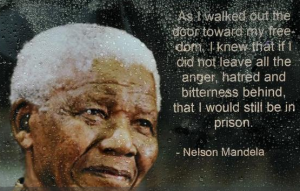 We each embrace beliefs that shape our lives. Do you believe you are alone or do you believe that we are together? And what about your tribe—which might be your family, religion, or whatever community you identify with. Does your tribe stand alone or together with others?
We each embrace beliefs that shape our lives. Do you believe you are alone or do you believe that we are together? And what about your tribe—which might be your family, religion, or whatever community you identify with. Does your tribe stand alone or together with others?
Alone together—that’s the question
I’ve been exploring this question recently as I read, My Promised Land, by Ari Shavit. It tells of the triumph and tragedy of Israel. Shavit’s great-grandfather first visited Israel in 1897 and he was one of the founders of Zionism, which supports Jews in maintaining their Jewish identity and creating a Jewish homeland.
As Shavit revisits Israel’s infancy, he tells of the early decades of the 1920′s and 30′s which were exceptionally good for the Jews of Palestine. The economy was booming and the culture was blooming. As Shavit writes, “Their life experience is that of an astounding collective success, based on self-reliance and innovation.”
But, then things change as a result of a civil war from 1936—39. The Jewish leadership and Jewish community as a whole adopted the belief: “us or them, life or death.” Innocence was replaced with innocent victims—Jews killing Arabs and Arabs killing Jews. As a result of adopting an “us or them” perspective, the Jews in Israel have lived embattled ever since.
Some choices result in survival, but at what price?
It is possible that if the Jews hadn’t adopted an “us or them” perspective they may not have survived. But, paradoxically, as a result of adopting such a perspective they assured themselves a life of continual conflict and anxiety about their survival.
An alternative approach can be seen in the actions of Nelson Mandela who chose not “us or them,” but “all of us together.” He insisted that domination—white over black or black over white—was not an option. How did he arrive at such an enlightened stance?
Some say that it was because he embodied a remarkable capacity for forgiveness. Personally, I do not believe it was forgiveness, but pragmatism. He chose the path that promised the greatest hope—not just for his people, but for all people.
27 years in prison
Although angry when he went to prison, he matured while in prison and by time he was released he was able to see the long view, which is a characteristic of maturity. He knew that an “us or them” stance would result in retaliation and endless struggle.
Instead of “us or them” he elevated the conversation and promoted an understanding that differences between people do exist and only by respecting those differences, not resenting them, would the South Africans find peace and prosperity.
These histories of Israel and South Africa will play out for generations to come. The choice of “us or them” looks ominous, the choice of “all of us together” looks auspicious.
Do you imprison yourself?
And we each make a similar choice in our own lives, in our marriages and other important relationships. We can see the world through an “us or them” filter and therefore stimulate fear, defensiveness, aggression, and alienation. Or, we can see the world through an “all of us together” filter, thus stimulating understanding, cooperation, openness, and connection.
Where does the “us or them” perspective come from? I believe it comes from the most primitive parts of our brains, the survival circuits. When we feel threatened we reach for the only tools our primitive brains know: fighting, fleeing, or freezing. You may think you don’t do these things, but when you insist you are right and you make other people wrong—that’s your fighting circuitry. When you walk out of a room in the middle of a conversation, or simply stop listening—that’s your fleeing circuitry. When you paralyze yourself, stop expressing your true feelings or go into confusion—that’s your freezing circuity.
Us or them. Good or bad. Right or wrong. Black or white. All of these overly simplistic distinctions stimulate the fear centers of our brains.
But we have a choice
If we learn to make finer and finer distinctions, which is a sign of greater intelligence, we activate the more advanced parts of our brains. This is precisely what happens when we learn to use ReSpeak. We slow ourselves down, we become more deliberate. We see every situation is comprised of multiple perspectives—as many perspectives as there are people. We stop telling other people about them. We stop trying to control other people. We become more vulnerable and in doing so we connect more deeply with other people. We recognize our differences while feeling our similarities.
This was the choice that Nelson Mandela made. And he advocated that Jews make a similar choice. He once remarked, “We know too well that our freedom will be incomplete without the freedom of the Palestinians.” And at the same time he acknowledged that the formal recognition of Israel as a Jewish state was an essential ingredient for peaceful co-existence.
Some people have referred to Madiba’s philosophy as the philosophy of “yes.” I encourage you to bring this philosophy of “yes” into your life and your relationships. When there is tension, always ask the question, “What can we say ‘yes’ too?” My wife, Hannah, and I always revert to these simple questions when we experience tension in our relationship. We ask,
Are we friends?
Do we love each other?
Do we want to reconnect?
Because we answer these questions with a resounding “yes,” we re-establish a loving connection. It works every time.
And, if the philosophy of “yes” seems a bit too vague—which I think it is for many people—I recommend that you learn ReSpeak, which provides a very specific way of communicating that brings about an “all of us together” result. You can learn the basics by reading my book, ReRight Your Life, but to truly transform your own dialogue, I recommend you come to one of our retreats.
Thank you for reading this article…I think this is such an important question: alone together?
P.S. If you are relating with other people who choose to see the world in black and white terms, and who choose to think they are right by making you wrong, and who do not deeply care about how you feel—then you may not be able to rise above those relationships and practice a different approach. You may need to remove yourself from such relationships—even if they are familial.
Choose Yes
The post Alone Together appeared first on Reology.
December 8, 2013
Invictus
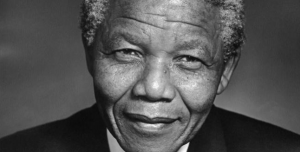
Out of the night that covers me,
Black as the pit from pole to pole,
I thank whatever gods may be
For my unconquerable soul.
In the fell clutch of circumstance
I have not winced nor cried aloud.
Under the bludgeonings of chance
My head is bloody, but unbowed.
Beyond this place of wrath and tears
Looms but the Horror of the shade,
And yet the menace of the years
Finds and shall find me unafraid.
It matters not how strait the gate,
How charged with punishments the scroll,
I am the master of my fate,
I am the captain of my soul.
by: William Ernest Henley
December 6, 2013
How NOT to Apologize
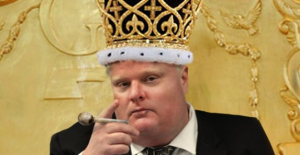 “I sincerely, sincerely apologize, what can I say? I make mistakes.”
“I sincerely, sincerely apologize, what can I say? I make mistakes.”The above quote is one of many by Toronto’s Mayor, Rob Ford. Even before he was elected mayor he was apologizing for his bad behavior, and since he’s become mayor it’s more frequent. Since May of 2013, it’s been happening pretty regularly. And in the month of November it was a rare day when Rob Ford didn’t stand abashed in front of the cameras sincerely apologizing for yet another debacle.
In early November he admitted that he had made some very foolish and reckless mistakes because he was “hammered.” He also admitted to and apologized for smoking crack cocaine, but the reason he did it was because he was in a drunken stupor. And he was sincerely apologetic.
A few days later, a local paper released a video of the mayor, high and extremely agitated, ranting about how he was going to kill someone. Later that day he sincerely, sincerely apologized. He then explained that video was shot when he was “extremely, extremely inebriated.” Soon after the video was released he made a most unfortunate sexual remark about one of his female colleagues and a few hours later made yet another sincere apology. This time his excuse was his anger.
But he continued to serve as mayor. Despite pleadings from city council, members of the provincial government, citizens, family and friends, the mayor insisted he was fine. He just has a slight personal problem and he is not an addict and doesn’t need help.
Unfortunately, for the city of Toronto there was no law, method, or power for city council to impeach the mayor, all they could do was watch him self-destruct. And apparently the provincial government didn’t have the authority either. After a month long media blitz—none of it positive—Toronto’s city council finally did all they were legally allowed to do—they stripped Mayor Ford of his power. He still has a seat in council and he can still vote, but he is essentially powerless, for now.
Apologize and be forgiven
When I think about this situation in conjunction with Hannah’s blogs from the recent weeks about no forgiveness without a sincere apology, I agree with her and I would take it a step further.
For those of you who don’t know about the disease of alcoholism or addiction, denial is perhaps the hardest nut to crack. If the addict has any chance of getting clean the first step is to admit that they are in trouble. Much like a truly sincere apology. When I know I’ve done something that has been unkind, hurtful or dishonest, my first job is to acknowledge it—to myself and then to you. A heartfelt apology. The next thing I have to do is change my behavior. Amend my way of relating with you.
If I have done something that has created a problem—I’ve lied, been rude, run away, or blamed you for my feelings then that behavior indicates an area where I need to do some work. This is probably not couple’s work or work that I need to discuss with the person(s) I’ve interacted with. This is my work.
And I still don’t deserve your complete forgiveness. If my apology is sincere, we can stop arguing about my behavior. But my next step is self-reflection—what’s going on with me? How am I doing myself? Once I have that answer I can talk with you and perhaps you’ll feel some compassion for me or have a better understanding of how I handle myself in a stressful situation. But, I still haven’t earned your forgiveness.
Forgiveness will flow
Forgiveness will flow effortlessly from you to me and from me to myself when the next time I am in a stressful situation, I handle myself differently. Forgiveness is earned when the behavior changes. I don’t have to change perfectly, I don’t have to do it completely, but I have to show that I am trying and I have to stop myself, probably clumsily at first, from being rude, dishonest, cold, blaming etc.
I’ve learned a lot in these last few weeks, watching Mayor Ford and reading Hannah’s blog and thinking about why it is so hard to say, “I’m sorry.” For me it’s because of what comes after the apology. When I make an apology I am essentially committing to make changes. I am saying, “Hey, sweetie, I am sorry, I was a jerk, I don’t know how to behave in this situation, I have no skill or experience in this area. I know what I did was unkind and __________ (dishonest, rude, blaming, etc) and I want to find a way to be kind to you and change my habitual response.” I have to train myself to respond differently.
That’s a tall order for anyone; especially a person like Rob Ford, who has never been taught that being wrong doesn’t mean you’re a bad guy. It just means you were wrong. And, for some, being wrong is a terribly frightening place to live.
I’m older . . . phew!
I am grateful that I am older and have made many mistakes. Accepting that I am going to make at least three mistakes a day takes the sting out of it. Not giant errors, but there is always something I could have said that would have been kinder and more thoughtful. It’s a rare day indeed when I don’t judge someone, blame someone or feel sorry for myself—fortunately I’ve been doing this long enough that my lapses don’t last very long. I haven’t cursed at anyone in ages, though I still catch myself rolling my eyes. I don’t spend days gnashing my teeth and plotting someone’s murder anymore but there are times when I wish certain people would just vanish from my life.
But, because I study Reology, I have a practice that helps me re-do myself more easily. When I make a mistake, I apologize and then I do my work. I sweep my side of the street; forget about whomever I’m angry with or upsetting myself over—that’s not where my peace lies. My peace comes from Re-doing me; my kindness comes from loving me in my mistakes and making every effort to conduct myself differently the next time.
If I had twenty minutes with Rob Ford, I’ll tell him to stop apologizing. Stop saying you’re sorry until you really are sorry. In the meantime, smoke all the crack and get as hammered as you want, because like me and every addict I know, we don’t stop until we stop.
Without fail, if you talk to a sober alcoholic they will tell you about a moment of clarity that changed everything. We call this grace. Many seize that moment and completely re-do themselves. Others pass it by only to be visited by grace again later down the road. Some never grasp the moment. I believe that grace is here for all of us and I believe it is waiting for Rob Ford. I hope he grabs it with both hands.
The post How NOT to Apologize appeared first on Reology.
November 29, 2013
Forgiveness Revisited
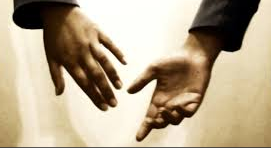 A few weeks ago I wrote about Forgiveness. I shared my belief that, at times, forgiveness only happens as a result of something else happening first—forgiveness happens because an apology comes first.
A few weeks ago I wrote about Forgiveness. I shared my belief that, at times, forgiveness only happens as a result of something else happening first—forgiveness happens because an apology comes first.
Is forgiveness always best?
I was challenging the popular idea that forgiveness is always the best choice. I was even challenging the idea that forgiveness is always a choice.
Many people think that a lack of forgiveness means we are chewing ourselves up or keeping our hearts shut, but this is not my experience. When I set boundaries, clear boundaries with my father, including refusing to forgive him unless he got help and apologized, I emboldened myself. I freed myself. I helped myself.
Maybe that’s why I am revisiting this subject today. I want those who burden themselves with the belief that they “should forgive” to give yourselves permission to decide for yourselves if that is indeed what’s best for you.
Unilateral forgiveness?
Several people expressed discomfort with my previous article. A thoughtful friend and member of our community questioned my ideas. Thank you! He shared his belief that forgiveness is something you can do unilaterally, by choosing to let go of your resentment. He offered a quote from Maya Angelou’s new book “You must forgive. It’s for your own sake – to rid yourself of that weight.”
In Dr. Angelou’s book, one example she offers about the act of forgiveness comes from a time when she was beaten nearly to death by a jealous lover. She says she chose a path of forgiveness rather than revenge.
She tells of her ex-lover begging her not to shoot him when she confronted him in the street with a gun. He said: ‘please don’t shoot me, please, please don’t hurt me. I’m sorry.’ She responded: “You disgust me, go away, go away,’” Angelou then said she let him go and said “I’m not carrying him another moment.”
From a Reology perspective I would say that what Maya really did that day was let her revenge go by choosing not to have anything more to do with her ex-lover. She no longer burdened herself with seeking revenge. I think she just let go, and she took her power back.
An alternative
Forgiveness is the one way to un-weight ourselves from resentment. I believe that compassion is another way and that there is a difference between forgiveness and compassion.
Compassion is being able to understand our human condition, our imperfection, another’s weaknesses and ignorance, and having sympathy for the suffering of another and thus letting go of revenge.
For me, the difference between the two is this. If I forgive you, I also welcome you back into my life. But, if I don’t feel safe with you—largely because you haven’t taken responsibility for your actions, then I’m not welcoming you back into my life. Instead, I will have compassion for you, and I will keep my distance.
A Jewish perspective
Interestingly, in Judaism, one must go to those he has harmed and apologize in order to be entitled to forgiveness.
A Christian perspective
Whereas in Christianity, “And Jesus said, ‘Father, forgive them, for they know not what they do.’” (sounds more like compassion to me than forgiveness). Jesus advocated forgiveness without the offender accepting any responsibility or even an understanding of his actions.
A personal perspective
I think that what really matters is to consciously choose what is best for yourself. And I want to offer caution to people who too frequently assume that the best thing to do is to forgive. If I forgive prematurely, I can be denying some aspect of my true experience—and in this way I disrespect myself.
Perhaps there are three options to dealing with un-weighting ourselves from the burden of resentment:
1. Let go and close the door—no continued relating with the offender.
2. Accept an apology—forgive, learn and grow—and open the door to a new way of relating with the other person.
3. Live in a Reology orientation in which we really don’t experience resentment.
Resentment is the result of holding other people accountable for our pain or suffering. When we stop seeing the world in this way, resentment is replaced with responsibility. Maybe this is why, in part, I don’t relate fully to the people who are talking about forgiveness as the way to release resentments.
In closing, I suggest we each decide for ourselves what is best for us. And when it comes time to relate with people who you perceive as unsafe, consider if compassion is a better solution for you than forgiveness.
p.s. It is this kind of personal exploration—figuring out what you believe, what kind of boundaries you need to create—that allows each of us to shape our own lives. This is what we do at our personal growth retreats. Consider coming to our next program, in January, if you want to reshape your life.
The post Forgiveness Revisited appeared first on Reology.



